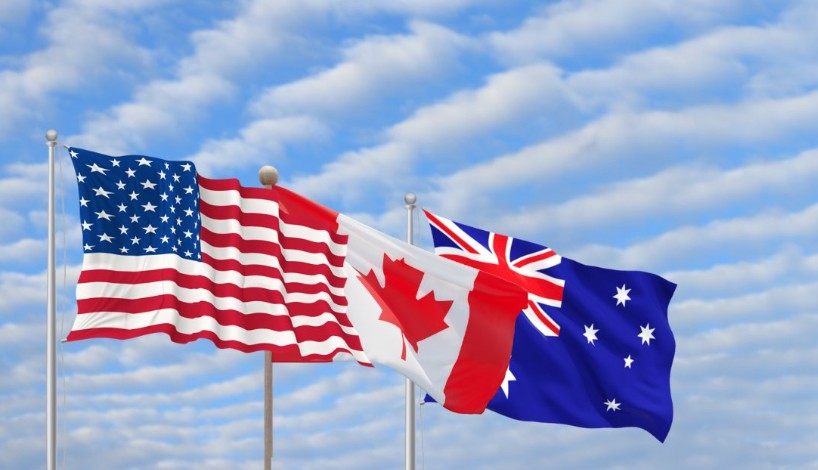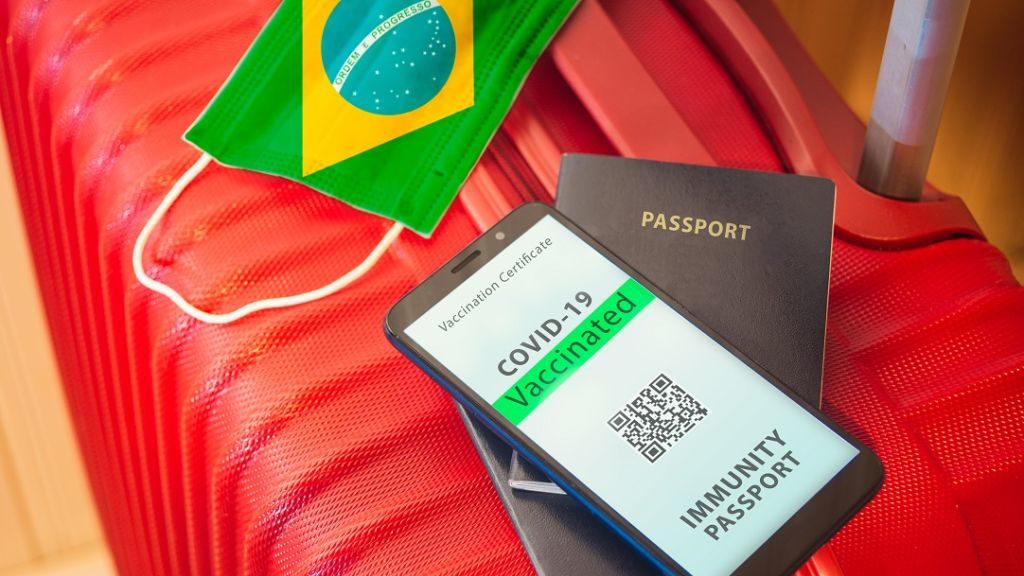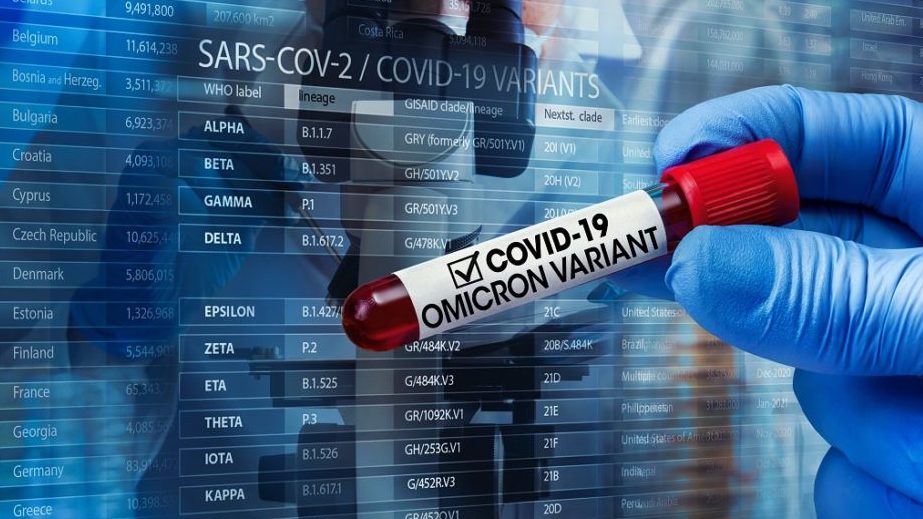
Visa exemptions for certain nationalities rei...
read more

Update 5 November 2022: ANVISA issued RDC 759/2022 revoking RDC 584/2021 and RDC 605/2022. Read more here.
Update 11 February 2022: Brazilian port health authority ANVISA has recently updated its regulation on crew changes and repatriations, as well as shoreside personnel’s access to vessels and platforms in national waters, (Collegiate Board Resolution RDC 584 of 8 December 2021).
ANVISA’s RDC 605 of 11 February 2022 introduced changes to the RDC 584/2021. The main amendments were the following:
A complete English translation of the revised RDC 584/2021, highlighting the changes brought about by the RDC 605/2022, is attached.
Detailed guidance on measures taken by the Brazilian authorities to tackle the COVID-19 spread can be found in our guide, which is being updated to reflect recent regulatory changes.
COVID-19 vaccination and testing are now mandatory for crew transfers and repatriations, as well as boarding of shore-based personnel
At the same time that the government reluctantly implemented vaccine mandates for air and land travellers, the federal port health authority (ANVISA) updated its regulation on sanitary measures for embarking and disembarking people from vessels and platforms. It includes a new requirement for COVID-19 vaccination for on-signing crews and shore visitors.
The move seeks to restrain the spread of the new variant of concern, Omicron.
Amid disagreements between the federal administration, health authorities and the Supreme Court over vaccine mandates, the new resolution left some grey areas, which were partly clarified through the Interministerial Ordinance 553 of 20 December 2021.
ANVISA’s Collegiate Board Resolution (RDC) 584 of 8 December 2021 addresses port health controls on embarkation and disembarkation of seafarers and shoreside personnel from cargo vessels, maritime support vessels, and platforms in Brazilian waters
RDC 584/2021 does not apply to cruise ships, barges, riverboats, ferries, yachts, rafts and catamarans.
Shipowners, operators and charterers are responsible for ensuring that people accessing vessels and platforms in Brazil adhere to the health regulations.
Port authorities, lessees, and landlords are accountable for verifying proof of complete COVID-19 vaccination and testing of port workers. They are also responsible for notifying ANVISA of a suspect or confirmed case according to the port’s contingency plan.
Non-compliance constitutes a sanitary offence, subjecting the infractor to fines, civil and criminal sanctions.
Crewmembers arriving in Brazil to join cargo vessels, platforms and maritime supporting vessels must meet the following requirements:
(*) Proof of immunisation with any vaccine approved by ANVISA, WHO, or the authorities of the country of departure can be printed or electronically, and at least 14 days must have passed since the crewmember received the last required dose. Those not eligible for inoculation under the National Immunisation Program are exempt from proof of vaccination, as long as they undergo a 14-day quarantine before boarding.
Currently, the boarding of foreign passengers (including seafarers) who travelled from or transited through South Africa, Botswana, Eswatini, Lesotho, Namibia and Zimbabwe in the past 14 days is temporarily suspended. The relevant regulation requires those who have been in a restricted country to be quarantined. Other southern African countries may be listed depending on the epidemiological evolution of the new variant in that region.
Landing and repatriation of crewmembers remain allowed at all Brazilian ports and should meet the same entry requirements applicable for foreign air travellers. In addition, the disembarking crew must provide:
(*) Although the specific regulation requires proof of vaccination of arriving air travellers, not all ports are currently enforcing it for disembarkations and repatriations of maritime crews.
(**) Off-signers are dispensed from filling out the Traveller’s Health Declaration (DSV) required from other air travellers since the agents already complete the Traveller’s Health Control Form (TCSV) form on the Paperless Port single-window system connected with port health and immigration authorities.

Shipowners planning crew changes should first check the latest position with local agents, the airline concerned and country of destination, as the off-signer may be required to present a vaccination certificate and carry out additional COVID-19 tests to be allowed aboard the aircraft.
Access to non-crew and outsourced professionals to vessels and platforms must be restricted to carrying out activities strictly necessary for cargo operations.
All visitors and professionals, including authorities, pilots, agents, chandlers, port operators, and other service suppliers, should provide:
(*) While the regulation shifts the supervisory duty to shipowners and operators of vessels and platforms, port authorities and terminal facilities must also require proof of full vaccination and negative testing to grant access to their premises. Nevertheless, currently, vaccine mandates have not been done consistently across all ports and terminals, though the position might change.
(**) Some remote ports in northern Brazil lack COVID-19 testing facilities on site. There may be delays for inspectors and other professionals attending vessels when instructed on short notice.
Public administration officials whose attendance cannot be rescheduled and professionals who perform functions associated with navigation safety do not need proof of vaccination and test. Nevertheless, they must wear face masks and maintain physical distance.
Healthcare professionals involved in urgent medical emergencies are also exempt from the obligation.
ANVISA’s latest regulation calls for periodical training of those involved in the operation of ports, vessels and platforms on non-pharmacological measures to cope with the COVID-19 pandemic.
Effective measures must be taken to minimise the contact of shore personnel with the crew and touchable surfaces of vessels and platforms. The use of face masks remains mandatory and must be promoted together with other measures such as frequent handwashing.
Shipowners, operators, and charterers must enforce the use of personal protective equipment (PPE) and make them available to all workers. They are also responsible for maintaining updated contingency plans to tackle COVID-19, which should include documented procedures for:
Those responsible for operating vessels and platforms must record health monitoring, through a crewmember designated for this function. It should contain information such as:
The presence of suspect or confirmed cases of COVID-19 implies the adoption of one three options available under Annex I of ANVISA’s RDC 584/2021, namely:
A crew communication protocol must be implemented with those responsible for operating vessels and platforms to ensure immediate notification of suspect cases of COVID-19.
Vessels and platforms must immediately notify ANVISA of cases of COVID-19, flu-like syndrome, SARS, acute diarrhoea and other compulsory notification diseases.
Deadlines for reporting shipboard health events must start between 36 and 24 hours of the estimated arrival at the first port of call, using the fastest communication means available.
The health authority must be duly informed of atypical health events, an increase in the number and severity of cases, a need for medical evacuation, or the occurrence of death onboard.
| Options | Management of close contacts |
| 1 Crew change | – All unvaccinated crew disembark for a 14-day quarantine ashore. – Then, all frequently touched surfaces (e.g. doorknobs, handrails, light switches, telephones) in shared spaces on board should be cleaned and disinfected. – A new crew sign on the vessel to resume operations. |
| 2 Quarantine at work | – Quarantine of 14 days onboard while essential unvaccinated, asymptomatic crew remain at work. – Rigorous physical distancing.Use of masks in all rooms, except cabins. – Frequently touched surfaces (e.g. doorknobs, handrails, light switches, telephones) in shared spaces onboard must be cleaned and disinfected. – If there are unvaccinated crewmembers, vessel operations may resume with her remaining close to shore, i.e., within approximately 1 hour of potential crew medical evacuations |
| 3 Operations suspended (quarantine) | – 14-day quarantine onboard of the non-essential unvaccinated crew. – Quarantine at work of the asymptomatic essential crew. – Rigorous physical distancing.Use of masks in all rooms, except cabins. – Frequently touched surfaces (e.g. doorknobs, handrails, light switches, telephones) in shared spaces on board should be cleaned and disinfected. – Vessel operations suspended (i.e. the vessel remains idle at the dock, berth or anchorage). |
Options for managing vessels with one or more cases of COVID-19 (Source: Annex I of ANVISA RDC 584/2021)
The choice rests with the shipowner or operator. They should consider the port location, itinerary, availability of an alternative crew and operational and logistical resources necessary to meet the chosen option. ANVISA must give prior consent to any of the choices following the prevailing epidemiological scenario and may, at its discretion, decide to adopt another option.
The fully-vaccinated crews are exempt from adopting the measures provided for in the Resolution. They must strictly follow ANVISA’s protocols for handling suspect or confirmed cases and close contacts.
ANVISA may impose a 14-day quarantine for crewmembers, regardless of their vaccination status, if there are inconsistencies in epidemiological or laboratory investigation, inconclusive reports, or negative results with samples collected before the 5th day or after the 7th day of contact with a suspect or confirmed case.
Vessels or platforms may be quarantined whenever potential risks to public health are identified, or if there is an indication of shipboard cases related to a variant of COVID-19 not in sustained transmission in Brazil.
If alongside, vessel quarantined according to Option 3 of Annex I must remain in an isolated area. The gangway ladder should be kept raised with access to shore people subject to ANVISA’s written consent, except in emergencies.
The vessel’s quarantine starts counting from the onset of symptoms or the date of collection of material for testing the last shipboard confirmed case.
The 14-day quarantine is reset if a new case is identified and confirmed, in which case a new option must be chosen.
Close contacts to suspect or confirmed cases not fully vaccinated should be tested for COVID-19 and quarantined for 14 days, or until the infection is ruled out.
Suspect or confirmed COVID-19 cases must be kept in isolation and comply with the provisions of the Guia de Vigilância Epidemiológica – Emergência de Saúde Pública de Importância Nacional pela Doença pelo Coronavírus [Epidemiological Surveillance Guide – Public Health Emergency of National Concern for Coronavirus Disease], published by the Ministry of Health.
Symptomatic crewmembers with a negative result by rapid antigen test should have a fresh sample collected for an RT-PCR (or RT-LAMP) test and remain in isolation until remission of symptoms, regardless of a negative result for the molecular test.
Samples should be drawn between the 5th and 7th day of the last contact with the confirmed case. Close contacts who are symptomatic and present negative or undetectable test results may be dispensed from further isolation measures.
Quarantined vessels can be supplied with water, stores, waste removal, and bunkers upon ANVISA’s approval of a plan outlining the operation flow and risks involved in the service.
The port health authority allows the landing of a suspect or confirmed case or unvaccinated close contacts to resume sanitary measures ashore as long as this measure is set out in the Port Contingency Plan for Public Health Emergencies.
ANVISA’s landing authorisation is subject to the consent of the municipal health authority and proper notification and follow-up of the case.
Emergency medical landings are allowed. They must be reported within four hours of disembarkation through the TCSV form or as required by the immigration and health authorities.
Medical evacuations must be detailed in the contingency plan, including procedures for safe transfers of ill or injured persons, maintenance of quarantine or isolation ashore and crew repatriations.
The company responsible for the vessel or platform must undertake the logistics required and bear the costs associated with the disembark, medical costs and expenses, and, when necessary, a pre-approved repatriation.
Aeromedical companies must comply with ANVISA’s Guide for Aeromedical Transport of COVID-19 Passengers; their costs being borne by the shipowner or operator of the vessel or platform.

Granting of free pratique is subject to the Maritime Declaration of Health (MDH) and copies of the medical logbook entries for the past 30 days. If the latter is absent, the master or his designated officer must certify so in the logbook on the date of the last entry.
ANVISA may authorise vessels with health events onboard to come alongside. The health authority will log the relevant information on the Virtual Single Document (DUV) to warn those enrolled in the Port Contingency Plan for Public Health Emergencies about the health event.
The vessel will only be issued with the Certificate of Free Pratique when the sanitary measures have been completed to the satisfaction of the health authorities.
Please read our disclaimer.
Published 18 December 2021. Updated 5 November 2022.
Related topics:
Rua Barão de Cotegipe, 443 - Sala 610 - 96200-290 - Rio Grande/RS - Brazil
Telephone +55 53 3233 1500
proinde.riogrande@proinde.com.br
Rua Itororó, 3 - 3rd floor
11010-071 - Santos, SP - Brazil
Telephone +55 13 4009 9550
proinde@proinde.com.br
Av. Rio Branco, 45 - sala 2402
20090-003 - Rio de Janeiro, RJ - Brazil
Telephone +55 21 2253 6145
proinde.rio@proinde.com.br
Rua Professor Elpidio Pimentel, 320 sala 401 - 29065-060 – Vitoria, ES – Brazil
Telephone: +55 27 3337 1178
proinde.vitoria@proinde.com.br
Rua Miguel Calmon, 19 - sala 702 - 40015-010 – Salvador, BA – Brazil
Telephone: +55 71 3242 3384
proinde.salvador@proinde.com.br
Av. Visconde de Jequitinhonha, 209 - sala 402 - 51021-190 - Recife, PE - Brazil
Telephone +55 81 3328 6414
proinde.recife@proinde.com.br
Rua Osvaldo Cruz, 01, Sala 1408
60125-150 – Fortaleza-CE – Brazil
Telephone +55 85 3099 4068
proinde.fortaleza@proinde.com.br
Tv. Joaquim Furtado, Quadra 314, Lote 01, Sala 206 - 68447-000 – Barcarena, PA – Brazil
Telephone +55 91 99393 4252
proinde.belem@proinde.com.br
Av. Dr. Theomario Pinto da Costa, 811 - sala 204 - 69050-055 - Manaus, AM - Brazil
Telephone +55 92 3307-0653
proinde.manaus@proinde.com.br
Rua dos Azulões, Sala 111 - Edifício Office Tower - 65075-060 - São Luis, MA - Brazil
Telephone +55 98 99101-2939
proinde.belem@proinde.com.br